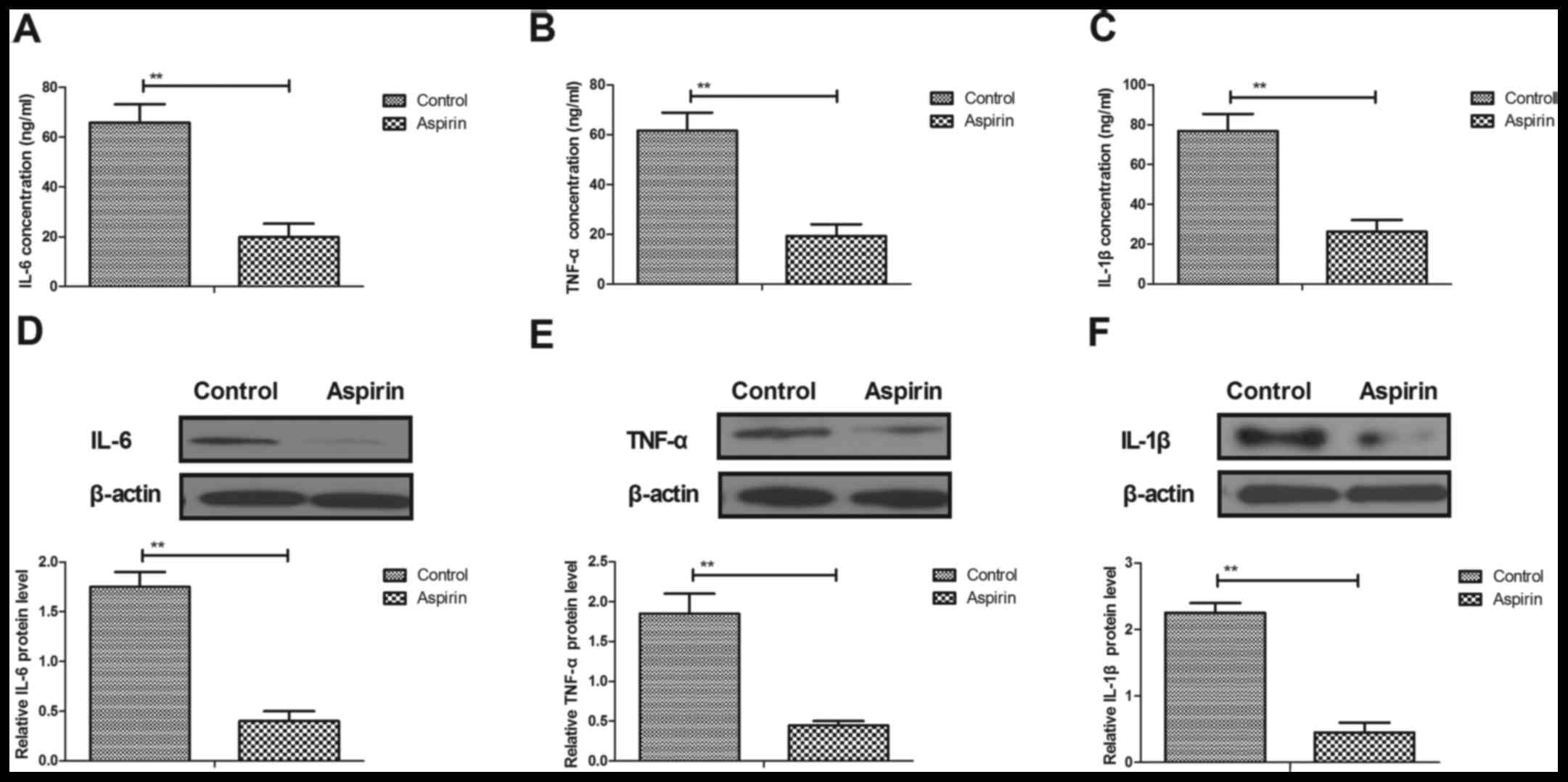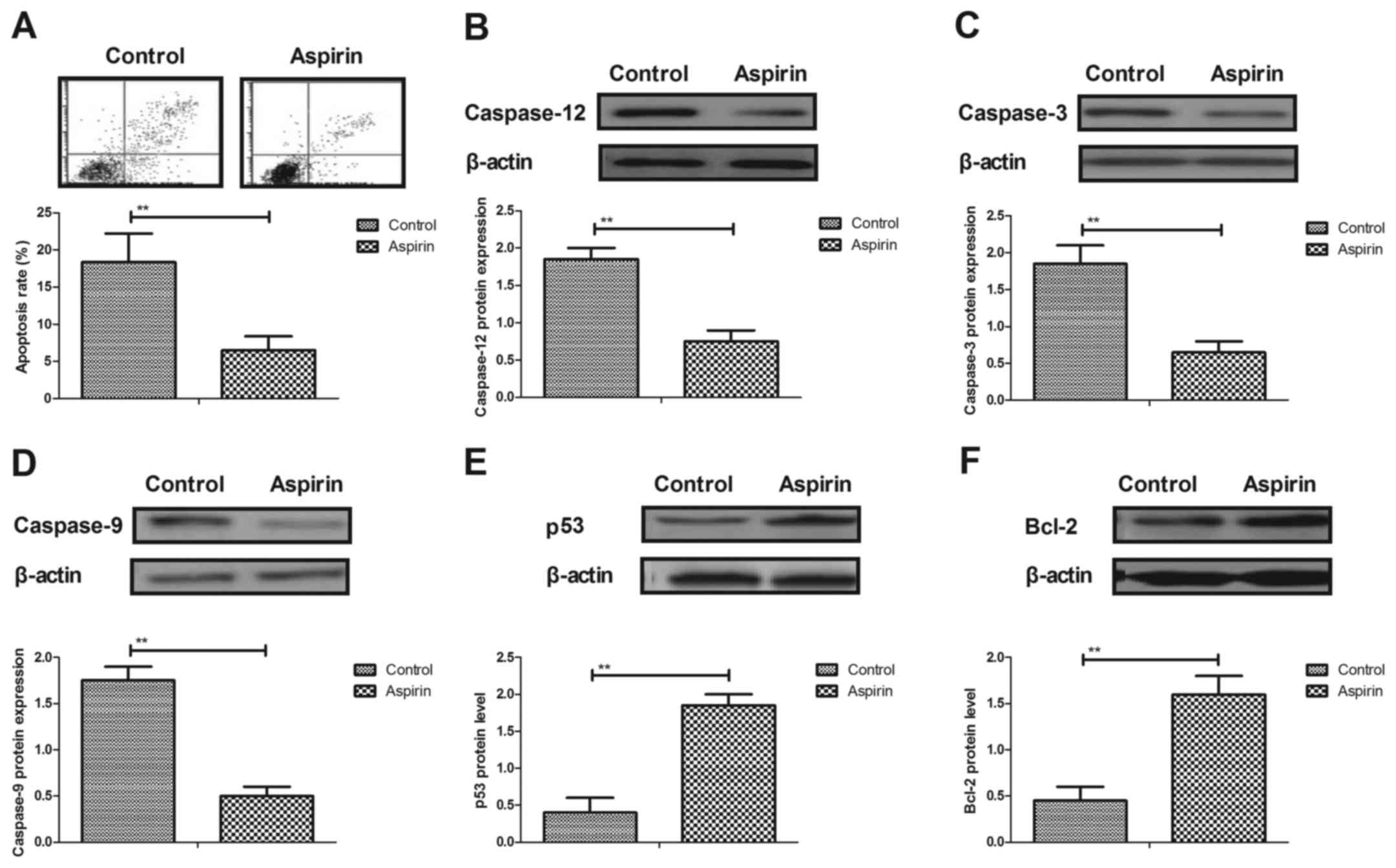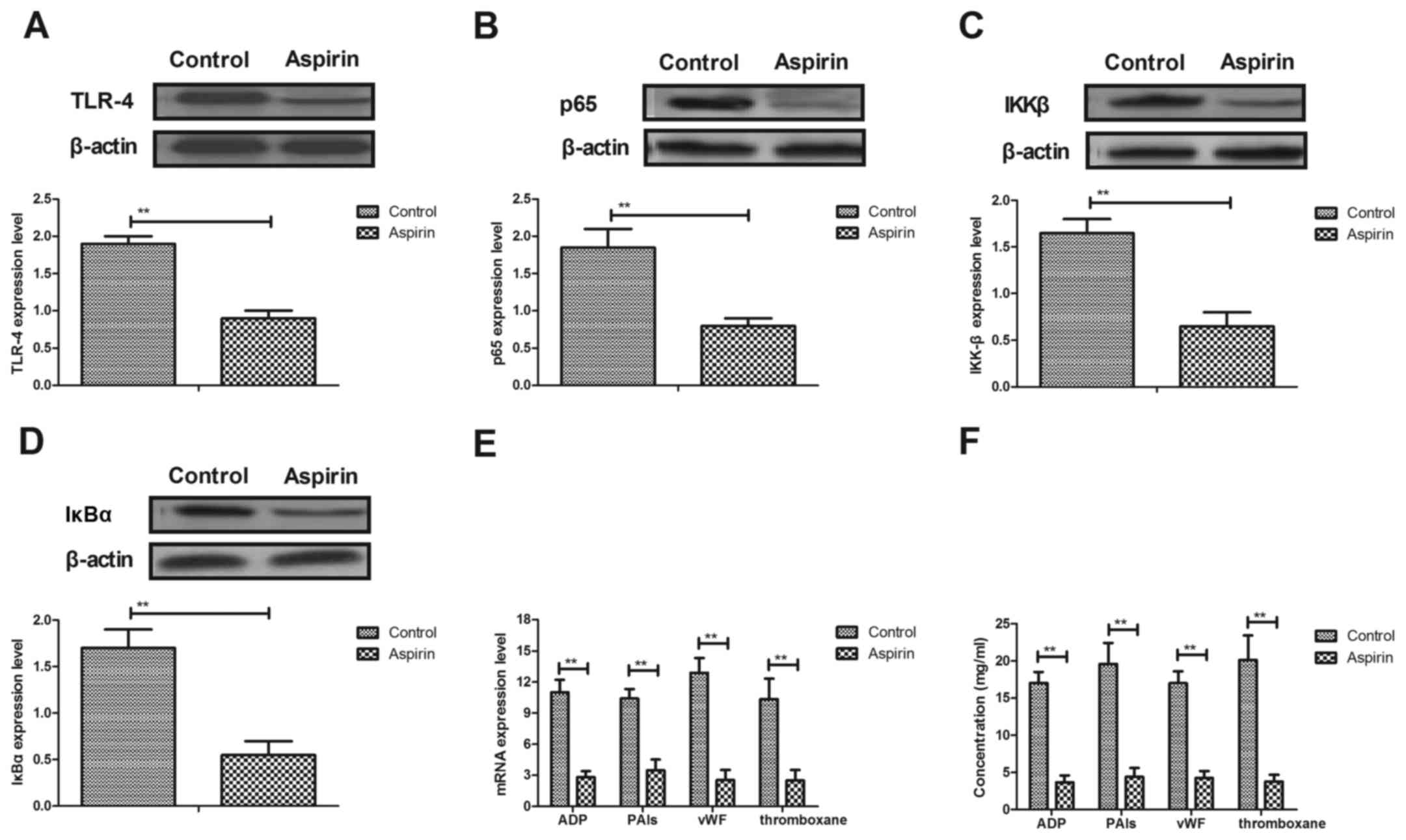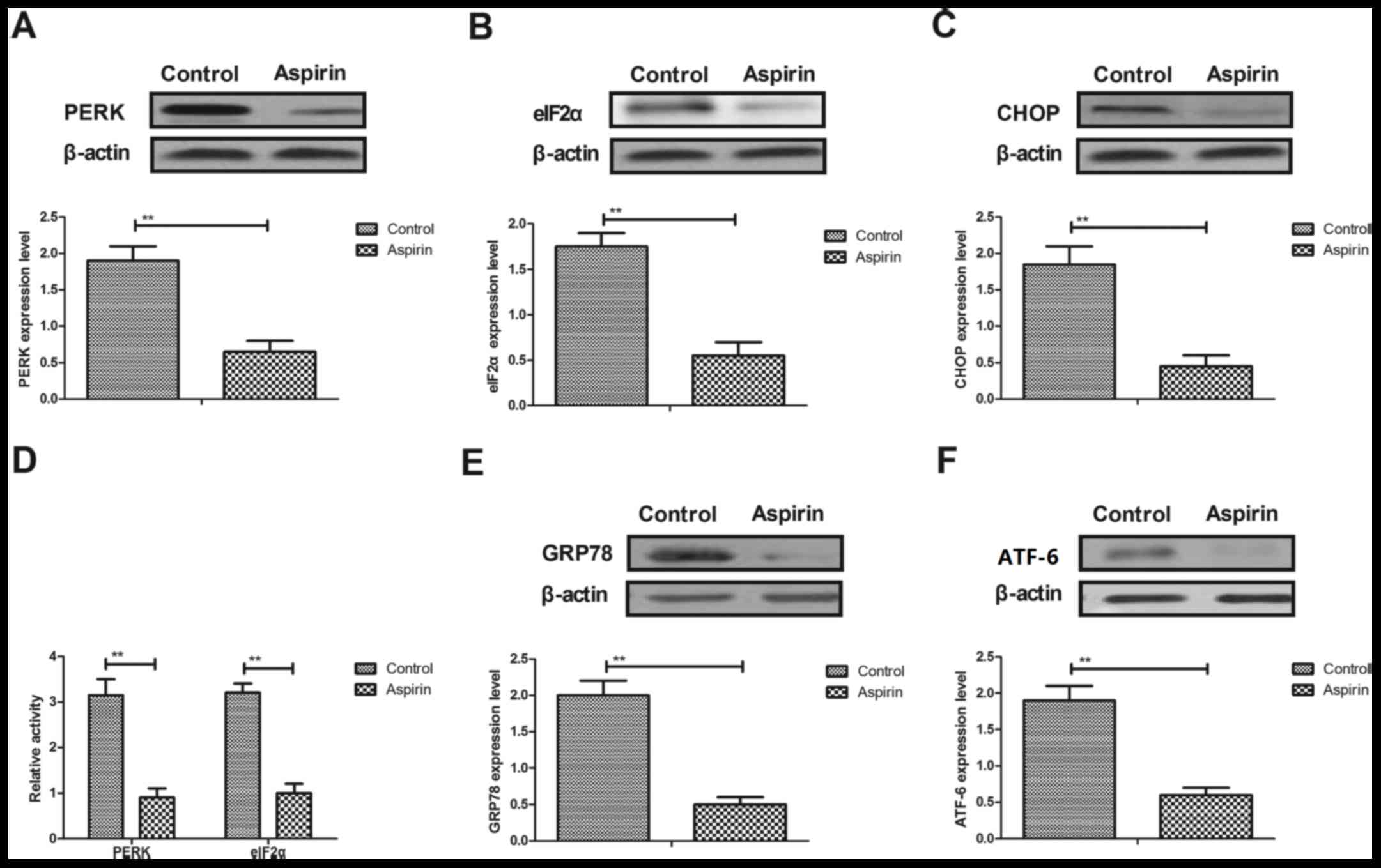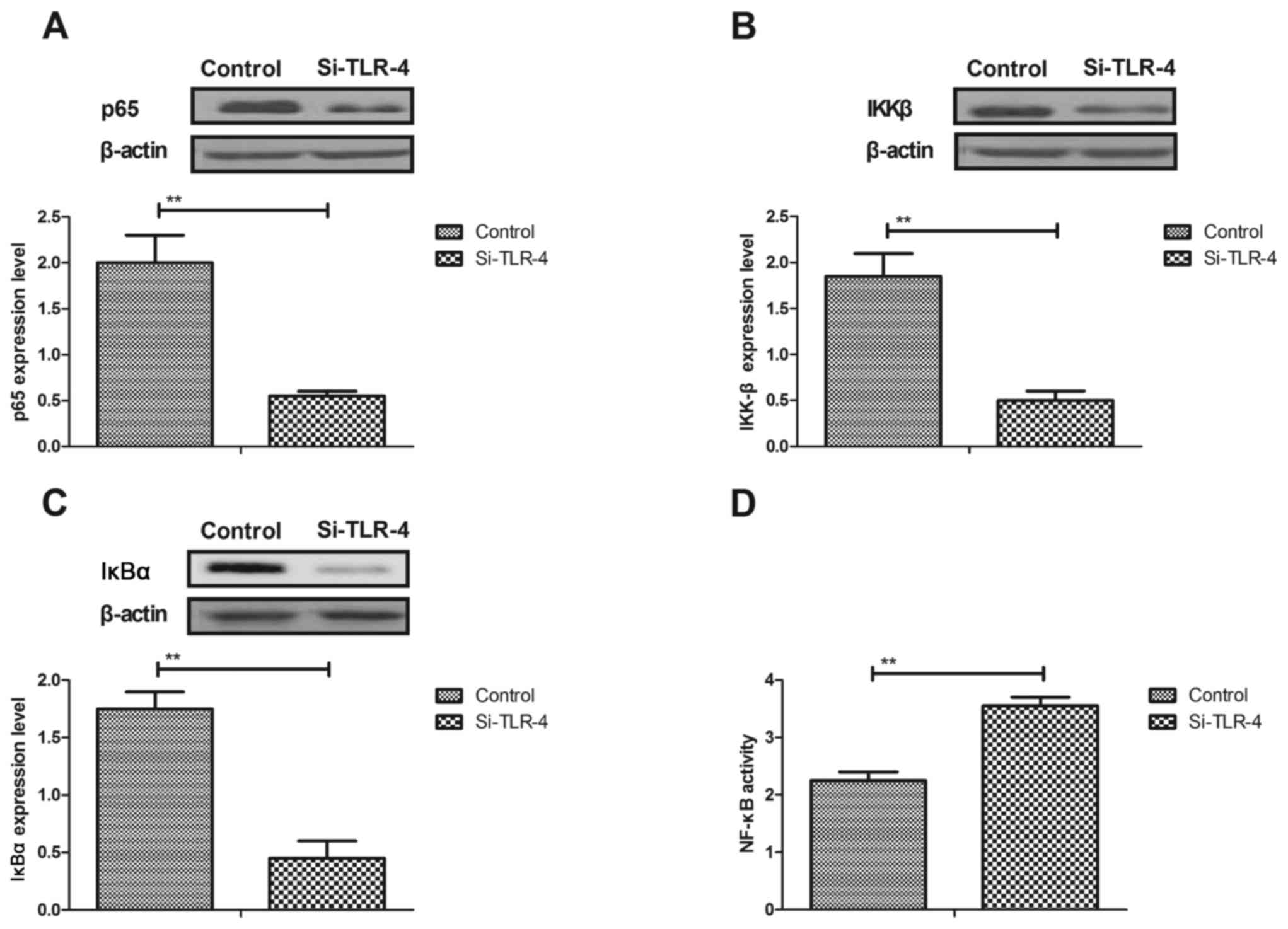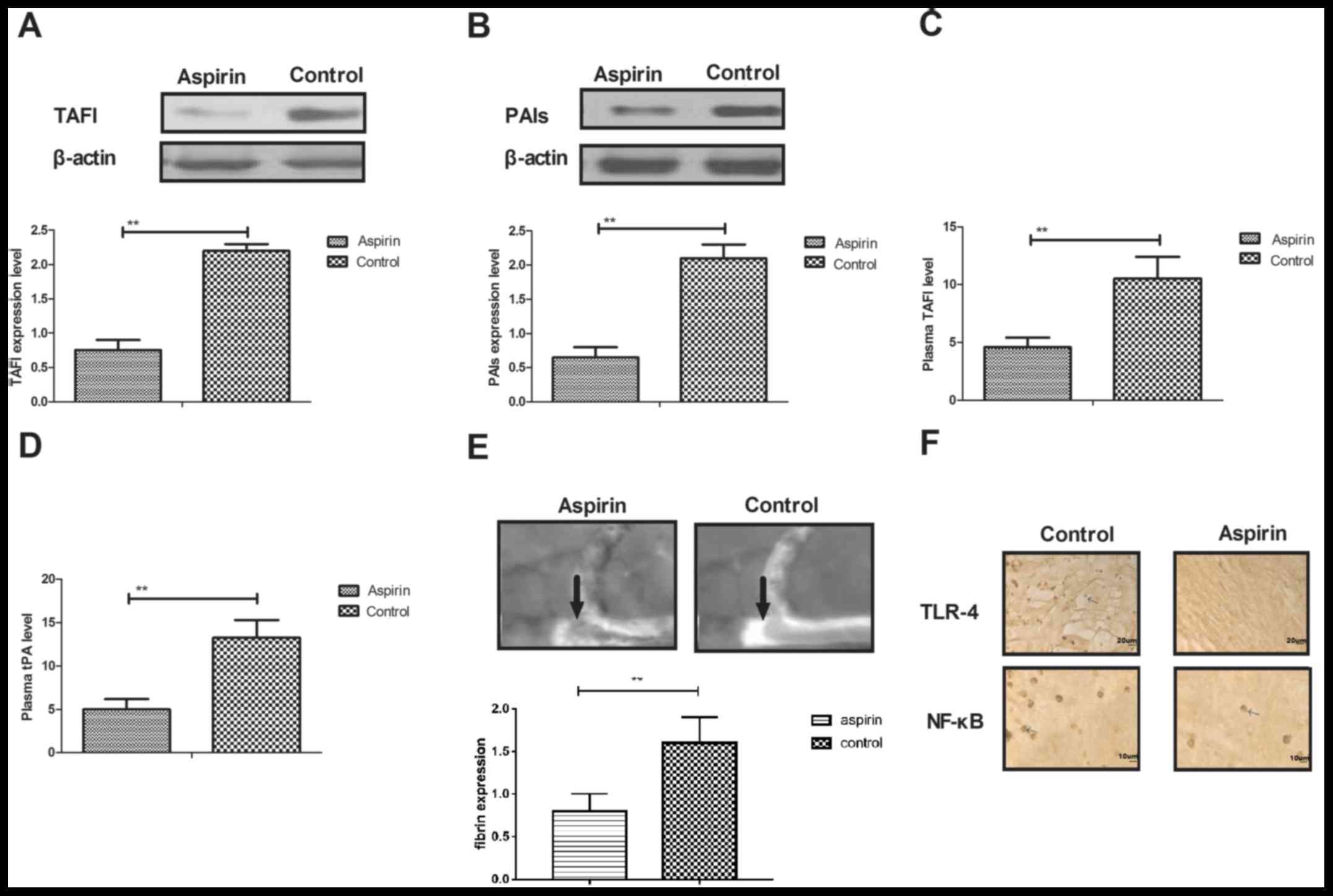|
1
|
García Serramito R, Santín Amo JM, Pena
Román P, Pita Buezas L, Gómez González L and Allut García A:
Cerebral infarction after pituitary apoplexy: Description of a case
and review of the literature. Neurocirugia (Astur). 27:310–314.
2016.(In Spanish). View Article : Google Scholar : PubMed/NCBI
|
|
2
|
Romi F and Naess H: Spinal cord infarction
in clinical neurology: A review of characteristics and long-term
prognosis in comparison to cerebral infarction. Eur Neurol.
76:95–98. 2016. View Article : Google Scholar : PubMed/NCBI
|
|
3
|
Arch AE and Sheth KN: Malignant cerebral
edema after large anterior circulation infarction: A review. Curr
Treat Options Cardiovasc Med. 16:2752014. View Article : Google Scholar : PubMed/NCBI
|
|
4
|
Russek NS and Jensen MB: Histological
quantification of brain tissue inflammatory cell infiltration after
focal cerebral infarction: A systematic review. Int J Neurosci.
124:160–165. 2014. View Article : Google Scholar : PubMed/NCBI
|
|
5
|
Hagiwara S, Yoshida A, Omata Y, Tsukada Y,
Takahashi H, Kamewada H, Koike S, Okuzumi K, Hishinuma A, Kobayashi
K and Nakano M: Desulfovibrio desulfuricans bacteremia in a patient
hospitalized with acute cerebral infarction: Case report and
review. J Infect Chemother. 20:274–277. 2014. View Article : Google Scholar : PubMed/NCBI
|
|
6
|
Chiba F, Makino Y, Motomura A, Inokuchi G,
Ishii N, Torimitsu S, Sakuma A, Nagasawa S, Saito H, Yajima D, et
al: Bilateral middle cerebral artery infarction associated with
traumatic common carotid artery dissection: A case report and
review of literature. Forensic Sci Int. 236:e1–e4. 2014. View Article : Google Scholar : PubMed/NCBI
|
|
7
|
Shi J, Zhi P, Chen J, Wu P and Tan S:
Genetic variations in the thrombin-activatable fibrinolysis
inhibitor gene and risk of cardiovascular disease: A systematic
review and meta-analysis. Thromb Res. 134:610–616. 2014. View Article : Google Scholar : PubMed/NCBI
|
|
8
|
Shinohara Y, Nishimaru K, Sawada T,
Terashi A, Handa S, Hirai S, Hayashi K, Tohgi H, Fukuuchi Y,
Uchiyama S, et al: Sarpogrelate-aspirin comparative clinical study
for efficacy and safety in secondary prevention of cerebral
infarction (S-ACCESS): A randomized, double-blind,
aspirin-controlled trial. Stroke. 39:1827–1833. 2008. View Article : Google Scholar : PubMed/NCBI
|
|
9
|
Li YS: Aspirin in secondary prevention of
cerebral infarction. Zhonghua Nei Ke Za Zhi. 46:625–627. 2007.(In
Chinese). PubMed/NCBI
|
|
10
|
Dong MX, Hu QC, Shen P, Pan JX, Wei YD,
Liu YY, Ren YF, Liang ZH, Wang HY, Zhao LB and Xie P: Recombinant
tissue plasminogen activator induces neurological side effects
independent on thrombolysis in mechanical Animal models of focal
cerebral infarction: A systematic review and meta-analysis. PloS
One. 11:e01588482016. View Article : Google Scholar : PubMed/NCBI
|
|
11
|
Dubis J, Zuk N, Grendziak R, Zapotoczny N,
Pfanhauser M and Witkiewicz W: Activity of thrombin-activatable
fibrinolysis inhibitor in the plasma of patients with abdominal
aortic aneurysm. Blood Coagul Fibrinolysis. 25:226–231. 2014.
View Article : Google Scholar : PubMed/NCBI
|
|
12
|
Naderi M, Dorgalaleh A, Alizadeh S, Khatib
Kashani Z, Tabibian S, Kazemi A, Dargahi H and Bamedi T:
Polymorphism of thrombin-activatable fibrinolysis inhibitor and
risk of intracranial haemorrhage in factor XIII deficiency.
Haemophilia. 20:e89–e92. 2014. View Article : Google Scholar : PubMed/NCBI
|
|
13
|
Kazanci Yaroglu S, Yesilbas O, Ersoy M,
Kihtir HS, Yildirim HM and Sevketoglu E: Cerebral infarction and
femoral venous thrombosis detected in a patient with diabetic
ketoacidosis and heterozygous factor V Leiden G1691A and PAI-1
4G/5G mutations. J Pediatr Endocrinol Metab. 28:1183–1186.
2015.PubMed/NCBI
|
|
14
|
Akatsu H, Yamagata H, Chen Y, Miki T,
Kamino K, Takeda M, Campbell W, Kondo I, Kosaka K, Yamamoto T and
Okada H: TAFI polymorphisms at amino acids 147 and 325 are not risk
factors for cerebral infarction. Br J Haematol. 127:440–447. 2004.
View Article : Google Scholar : PubMed/NCBI
|
|
15
|
Wei YP, Kita M, Shinmura K, Yan XQ,
Fukuyama R, Fushiki S and Imanishi J: Expression of IFN-gamma in
cerebrovascular endothelial cells from aged mice. J Interferon
Cytokine Res. 20:403–409. 2000. View Article : Google Scholar : PubMed/NCBI
|
|
16
|
Livak KJ and Schmittgen TD: Analysis of
relative gene expression data using real-time quantitative PCR and
the 2−ΔΔCT method. Methods. 25:402–408. 2001. View Article : Google Scholar : PubMed/NCBI
|
|
17
|
Cuenca-López MD, Brea D, Segura T, Galindo
MF, Antón-Martínez D, Agulla J, Castillo J and Jordán J:
Inflammation as a therapeutic agent in cerebral infarction:
cellular inflammatory response and inflammatory mediators. Rev
Neurol. 50:349–359. 2010.(In Spanish). PubMed/NCBI
|
|
18
|
Yan Z, Yu T, Wang Y, Wang M and Liang H:
Literature review and case report of intravenous thrombolysis in
acute cerebral infarction attributed to cervical arterial
dissection. J Stroke Cerebrovasc Dis. 24:e265–e269. 2015.
View Article : Google Scholar : PubMed/NCBI
|
|
19
|
Taylor B, Lopresti M, Appelboom G and
Sander Connolly E Jr: Hemicraniectomy for malignant middle cerebral
artery territory infarction: An updated review. J Neurosurg Sci.
59:73–78. 2015.PubMed/NCBI
|
|
20
|
Sha D, Fan G and Zhang J: Multiple
cerebral infarction as the initial manifestation of left atrial
myxoma: A case report and literature review. Acta Cardiol.
69:189–192. 2014. View Article : Google Scholar : PubMed/NCBI
|
|
21
|
Cohen LK and Jensen MB: Scaffolds for
intracerebral grafting of neural progenitor cells after cerebral
infarction: A systematic review. Arch Neurosci. 2:e253642015.
View Article : Google Scholar : PubMed/NCBI
|
|
22
|
Zhang C, Feng F, Zhu Y, Wang R and Xing B:
Cerebral infarction caused by pituitary apoplexy: Case report and
review of literature. Turk Neurosurg. 24:782–787. 2014.PubMed/NCBI
|
|
23
|
Shimamura N, Matsuda N, Kakuta K, Narita A
and Ohkuma H: A model of rat embolic cerebral infarction with a
quantifiable, autologous arterial blood clot. Transl Stroke Res.
4:564–570. 2013. View Article : Google Scholar : PubMed/NCBI
|
|
24
|
Fang MF, Tan F and Zhang X: Effects of
Huatan Tongluo Granule on SOCS-3 and TNF-α expressions in patients
with acute cerebral infarction. Zhongguo Zhong Xi Yi Jie He Za Zhi.
30:1142–1145. 2010.(In Chinese). PubMed/NCBI
|
|
25
|
Jiang Y and Lian YJ: Effects of Danhong
injection on hemodynamics and the inflammation-related NF-κB
signaling pathway in patients with acute cerebral infarction. Genet
Mol Res. 14:16929–16937. 2015. View Article : Google Scholar : PubMed/NCBI
|
|
26
|
Kim SJ, Jeong HJ, Lee KM, Moon PD, Yun JM,
Cho KH, Moon BS, Lee HJ, Hong SH, Kim HM and Um JY: The effect of
SHJKS on cytokines production and NF-κB activation in the
peripheral blood mononuclear cells of patients with cerebral
infarction. Immunopharmacol Immunotoxicol. 28:557–570. 2006.
View Article : Google Scholar : PubMed/NCBI
|
|
27
|
Li M, Peng J, Wang MD, Song YL, Mei YW and
Fang Y: Passive movement improves the learning and memory function
of rats with cerebral infarction by inhibiting neuron cell
apoptosis. Mol Neurobiol. 49:216–221. 2014. View Article : Google Scholar : PubMed/NCBI
|
|
28
|
Li B, Tian J, Sun Y, Xu TR, Chi RF, Zhang
XL, Hu XL, Zhang YA, Qin FZ and Zhang WF: Activation of NADPH
oxidase mediates increased endoplasmic reticulum stress and left
ventricular remodeling after myocardial infarction in rabbits.
Biochim Biophys Acta. 1852:805–815. 2015. View Article : Google Scholar : PubMed/NCBI
|
|
29
|
Li M, Peng J, Song Y, Liang H, Mei Y and
Fang Y: Electro-acupuncture combined with transcranial magnetic
stimulation improves learning and memory function of rats with
cerebral infarction by inhibiting neuron cell apoptosis. J Huazhong
Univ Sci Technolog Med Sci. 32:746–749. 2012. View Article : Google Scholar : PubMed/NCBI
|
|
30
|
Chen L, Hu L, Zhao J, Hong H, Feng F, Qu W
and Liu W: Chotosan improves Aβ1-42-induced cognitive impairment
and neuroinflammatory and apoptotic responses through the
inhibition of TLR-4/NF-κB signaling in mice. J Ethnopharmacol.
191:398–407. 2016. View Article : Google Scholar : PubMed/NCBI
|
|
31
|
Plug T and Meijers JC: New clues regarding
the mysterious mechanism of activated thrombin-activatable
fibrinolysis inhibitor self-destruction. J Thromb Haemost.
13:1081–1083. 2015. View Article : Google Scholar : PubMed/NCBI
|
|
32
|
Oztuzcu S, Ergun S, Ulaşlı M, Nacarkahya
G, Iğci YZ, Iğci M, Bayraktar R, Tamer A, Çakmak EA and Arslan A:
Evaluation of factor V G1691A, prothrombin G20210A, factor XIII
V34L, MTHFR A1298C, MTHFR C677T and PAI-1 4G/5G genotype
frequencies of patients subjected to cardiovascular disease (CVD)
panel in south-east region of Turkey. Mol Biol Rep. 41:3671–3676.
2014. View Article : Google Scholar : PubMed/NCBI
|
|
33
|
Hilbers FS, Boekel NB, van den Broek AJ,
van Hien R, Cornelissen S, Aleman BM, van't Veer LJ, van Leeuwen FE
and Schmidt MK: Genetic variants in TGFβ-1 and PAI-1 as possible
risk factors for cardiovascular disease after radiotherapy for
breast cancer. Radiother Oncol. 102:115–121. 2012. View Article : Google Scholar : PubMed/NCBI
|















